Clara Hsu’s “Canto Pride” on a mission to preserve and share Cantonese Culture through the art of performance
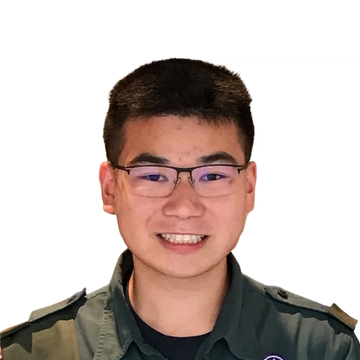
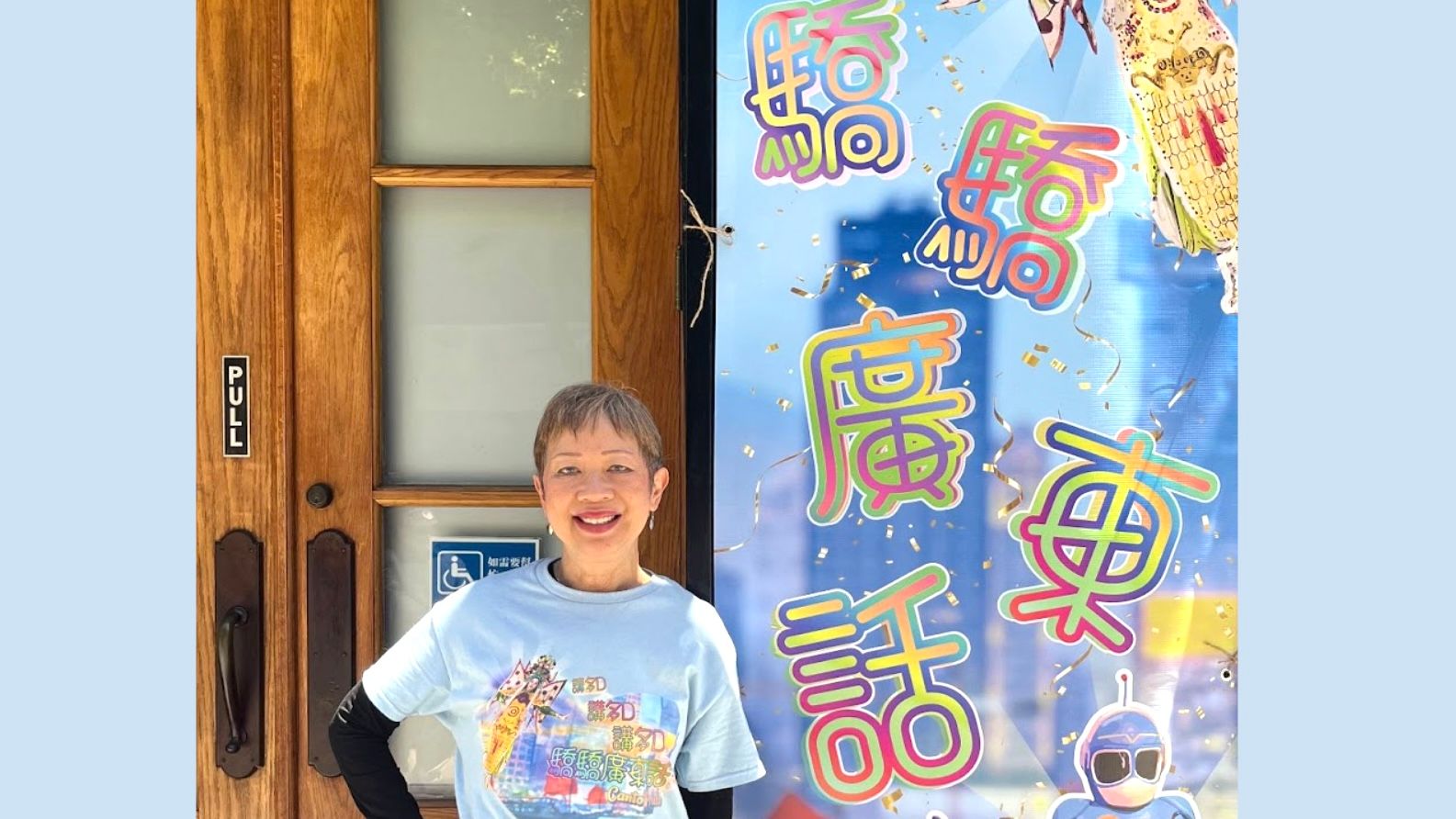
SAN FRANCISCO — Premiering on August 8–10 and 15–17, “Canto Pride,” the newest original play produced by the Clarion Performing Arts Center in San Francisco Chinatown, aims to celebrate, promote, and preserve Cantonese culture.
Created and written by Hong Kong-born poet and playwright Clara Hsu, directed by Cruz Chan, and produced by Mimi Mok, Canto Pride is a variety theatrical show that showcases Cantonese culture through short plays, poetry, Cantopop, and mahjong.
Six performances were planned for the Canto Pride in August this summer at the Clarion Performing Arts Center located at 2 Waverly Place in San Francisco Chinatown.
Clarion Performing Arts Center was founded by Hsu in 1982 when she received an offer from the Captain of the Salvation Army Corps in Chinatown to take over a retail space in the basement of an old church. Hsu sold pianos and violins at the facility from 1982 to 2000.
Hsu sold the space in 2000 to her employees who transformed it as a location specialized in Chinese music until 2016 when her former employees decided to close the business.
Then Hsu bought back the establishment in 2016 and opened Clarion Performing Arts Center in 2019. The center has since become an active community space full of art and music events for people of all ages.
The newest Canto Pride show performed in the Clarion Performing Arts Center aims to pique the interests of audiences ranging from people very familiar with Cantonese culture to those who know very little. While being performed entirely in Cantonese, English subtitles are provided for non-Cantonese speaking audiences.
Canto Pride is the second Cantonese play written by Hsu after “DragonBeard,” which followed the story of a young Chinese immigrant woman as she faced and overcame the challenges of moving to Chinatown with the help of four magical friends.

DragonBeard premiered in 2024, accompanied by a stage reading performed by the cast and crew at the Koret Auditorium of the San Francisco Main Library.
Hsu’s decision to create Cantonese plays stems from both her desire to share her appreciation for the culture and from her concern over the language’s decline, a trend caused in part by Mandarin being designated as China’s official dialect.
Through “Save Cantonese,” an international movement dedicated to sustaining and celebrating Cantonese culture, Hsu learned that Cantonese plays have not been performed in San Francisco since the late 1980s. In response, she wrote DragonBeard to reintroduce Cantonese theater to the city and to be the first Cantonese play written by a Chinese-American playwright.
“Somebody challenged me, not me in particular, but asked the question, ‘Why aren't there Cantonese plays in San Francisco?’” Hsu said in an interview with Wind Newspaper. “I said, ‘I don't know. I've never heard of a Cantonese play.’ But because of that question, I realized there are no Cantonese plays written by a Chinese-American playwright.’ So I tried it, and that’s how ‘DragonBeard’ got started.”
DragonBeard sold out all of its available showings, marking a major success for Hsu.
Motivated by the response, Hsu and her Clarion team began brainstorming more plays to further showcase Cantonese culture, ultimately leading to the conception of Canto Pride.
"DragonBeard was the first to try to have an original play about the Chinatown immigrant story written in Cantonese,” said Mini Mok, producer of Canto Pride. “After DragonBeard, Clara, Cruz, and I thought, ‘why don't we try to have some regular Cantonese programming for the Bay Area Cantonese speaking community?’”
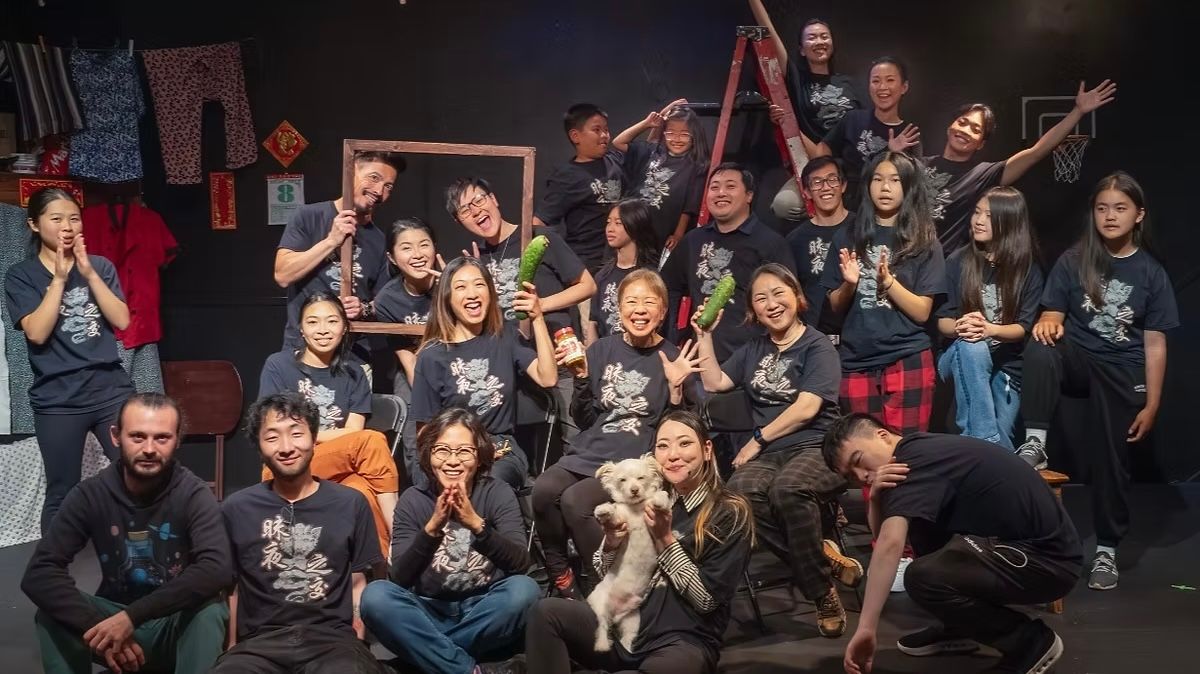
During the early stages of development, a sentiment among the team was that most people are generally only aware of the food associated with Cantonese culture. Therefore, exhibiting the richness and diversity of the culture across history became a top priority. The variety format was chosen to achieve this goal.
One segment, The Last Opera Diva of Havana, tells the story of Caridad Amaran, who is believed to be the last Cuban-Cantonese opera diva. Born on September 12, 1931, Amaran was adopted by professional Cantonese opera artists in Havana, Cuba. She was trained in the art of Chinese opera and began performing at a young age.
With Chinese-Cuban culture on the decline in the 1950s following the Cuban Revolution, Amaran continued to perform Cantonese opera throughout her life to ensure that it would not be lost.
Before Amaran’s passing on March 15, 2024, Hsu personally met her and subsequently wrote the poem “Caridad Ameran Del Barrio de China, the last Chinese opera singer in Havana.” To highlighting the diverse individuals influenced by Cantonese culture, Hsu chose to feature Amarin in the production.
Actress Esther Tang, who performs Amaran’s section, was drawn to the role through her upbringing in Malaysia, a country heavily influenced by Cantonese culture, which nurtured her passion for Cantonese opera.
“When Clara shared this idea, I was definitely super interested, because I was born and raised in Malaysia, and I'm not Cantonese, and Cantonese is not even my first language.” Tang said. “However, I've always been drawn to Chinese culture. So I got exposed to Cantonese opera and started learning it.”
By highlighting and honoring many facets of Cantonese culture, Hsu and the Clarion team hope the production will inspire members of the Cantonese diaspora who feel distanced from their heritage to reconnect with it.
Through her own children, Hsu has witnessed the frustration that many young Chinese Americans experience when they feel detached from their cultural roots.
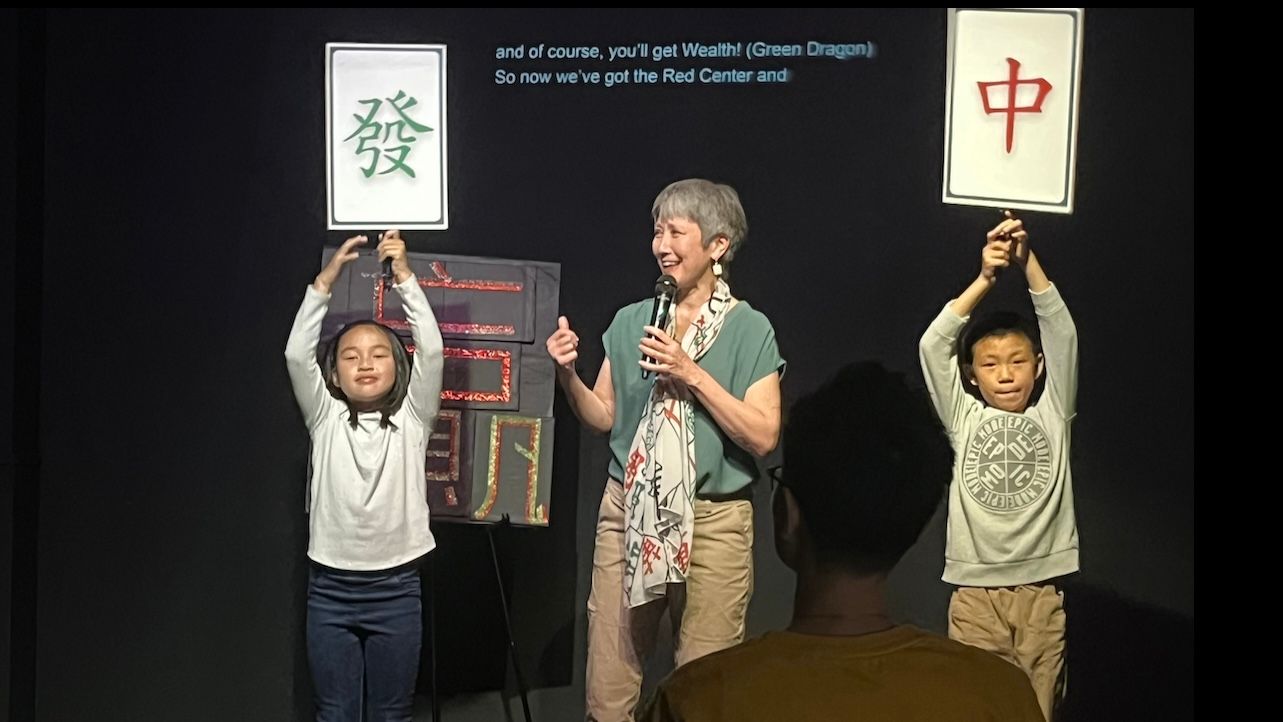
“For them, at some point, they questioned their identity.” Hsu explained. “I think part of the insecurity is because they don't know their roots. They don't know where they came from and what made them who they are today. And that is all in the language and the culture.”
While Hsu hopes people will feel excited to reconnect with their culture, she also understands that not everyone is interested in doing so. However, she still wants people to be aware of their backgrounds.
“I want people to just have a little bit of awareness of everything.” Hsu said. “They don't have to like it, but they have to know about it.”
Making an analogy to advice the child actors of the cast, Hsu explained, “That’s what I tell the kids: you don't have to like it, but at least you know, then at some point you might like it. So, you give yourself that opportunity.”
Beyond helping those of Cantonese ancestry reconnect with their heritage, the show also seeks to share the culture with a broader audience. That impact has already occurred with its social media manager and costume and graphic designer, Inga Chernogradskaia, who is of Russian origin and immigrated to the United States at 21.
After getting hired as an assistant to Hsu and subsequently working on several Clarion projects, she developed a deep appreciation for Cantonese culture, despite not speaking the language herself.
“It's such a beautiful sounding language.” Chernogradskaia said. “I talk to Clara and Mimi and I listen to them speak everyday, and then whenever I ask the meaning, they always have interesting ways to describe things.”
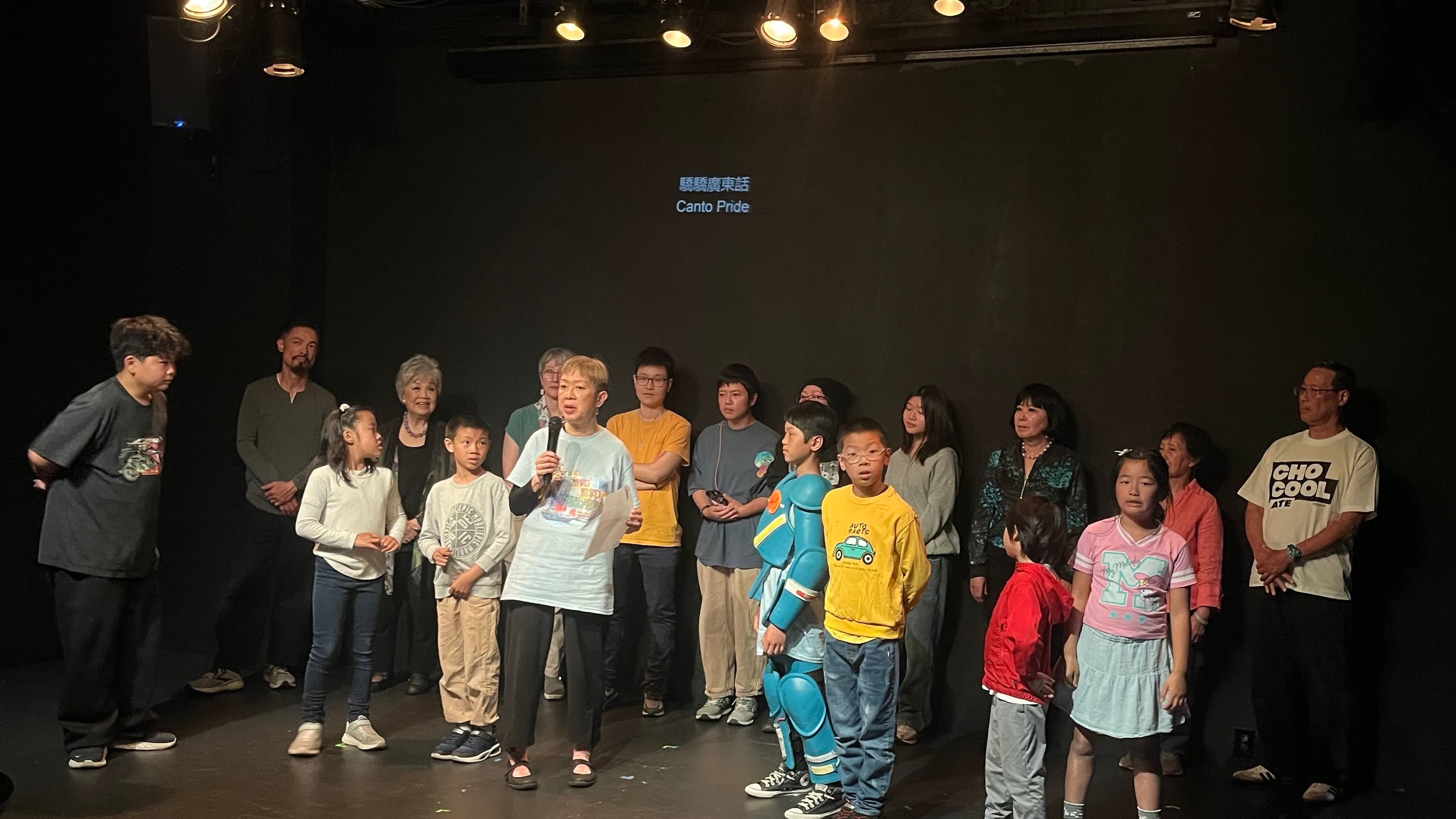
As a result, Chernogradskaia echoes the hope that the Cantonese language culture will endure for future generations.
“It's a very descriptive language,” said Chernogradskaia. “And I think it would be a terrible loss if the whole Cantonese community and language just disappeared one day.”
As the mission to conserve and empower Cantonese culture continues, Hsu and the Clarion team are committed to building upon what they started to ensure that the culture does not fade into obscurity.
Joseph Woo Chan is a student at Pitzer College of the 5 Claremont Colleges. He writes for the college's student-run newspaper, The Student Life. This summer, he's writing for Wind Newspaper to cover arts, entertainment, and Chinatown history.
- San Francisco becomes a newest local partner of Dolly Parton’s Imagination Library in the Bay Area to offer free books to all young children
- California state employees alarmed by demand to prove their citizenship or work eligibility
- “No Red Lanes on Ocean Avenue”, Chinese American merchants, residents and community members in San Francisco say
- Open Forum: Strong protest against unilateral street closure decision for SF Chinatown night market without merchant consultation
- Interim Police Chief Paul Yep honored for leadership with historic low crime rate and record high police hirings
- An increase in flu activity seen in SF Bay Area, experts recommend everyone aged 6 months and older to receive the flu vaccine
- SB 1234 is fully in effect in 2026 and requires employers to offer retirement plans to all employees, full-time, part-time & short-term
- Six power outages in Sunset District impact residents and businesses among strings of outages in San Francisco in Dec. 2025






